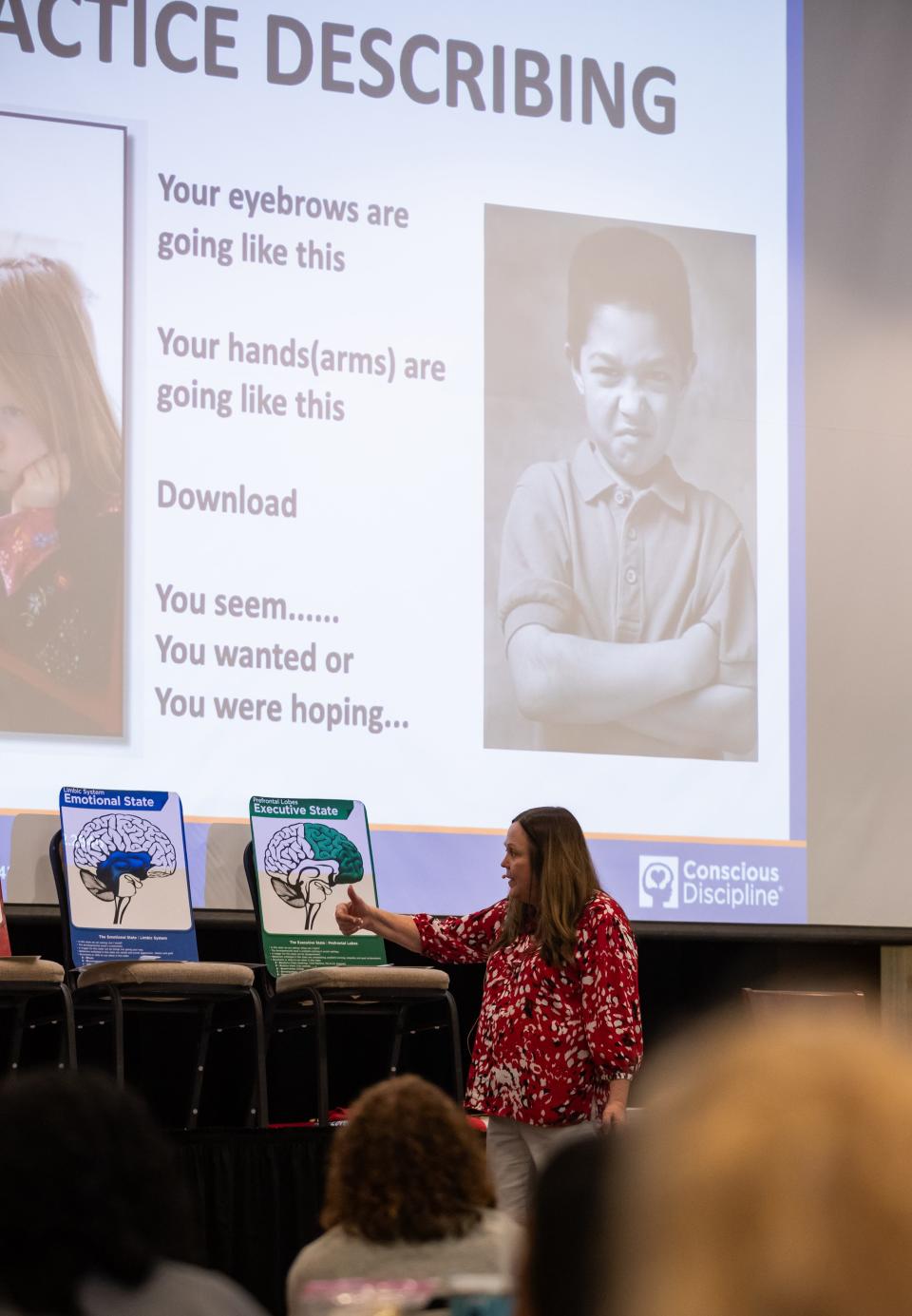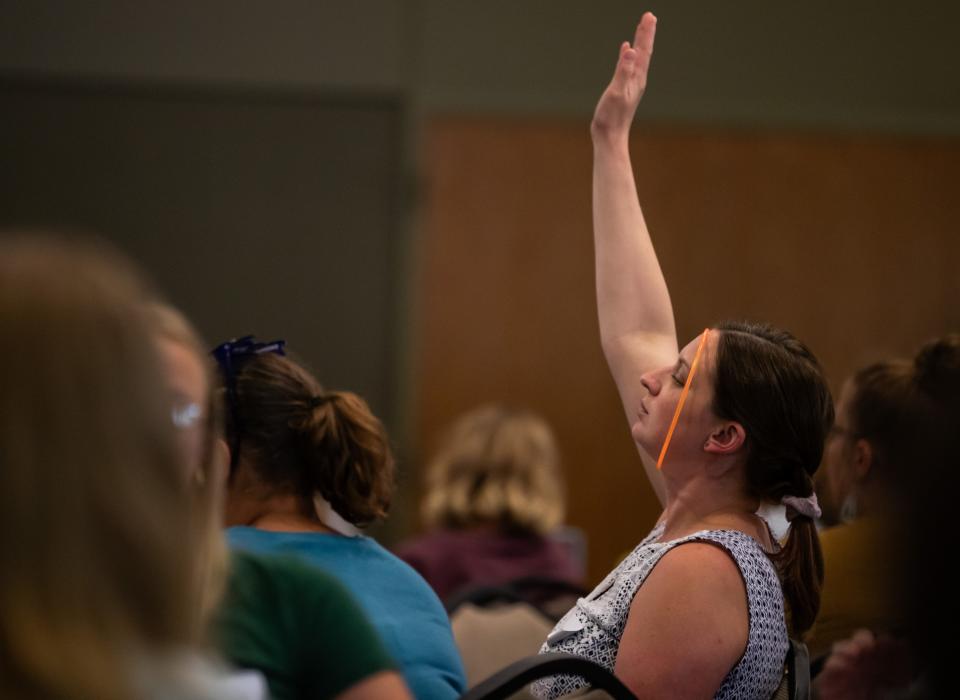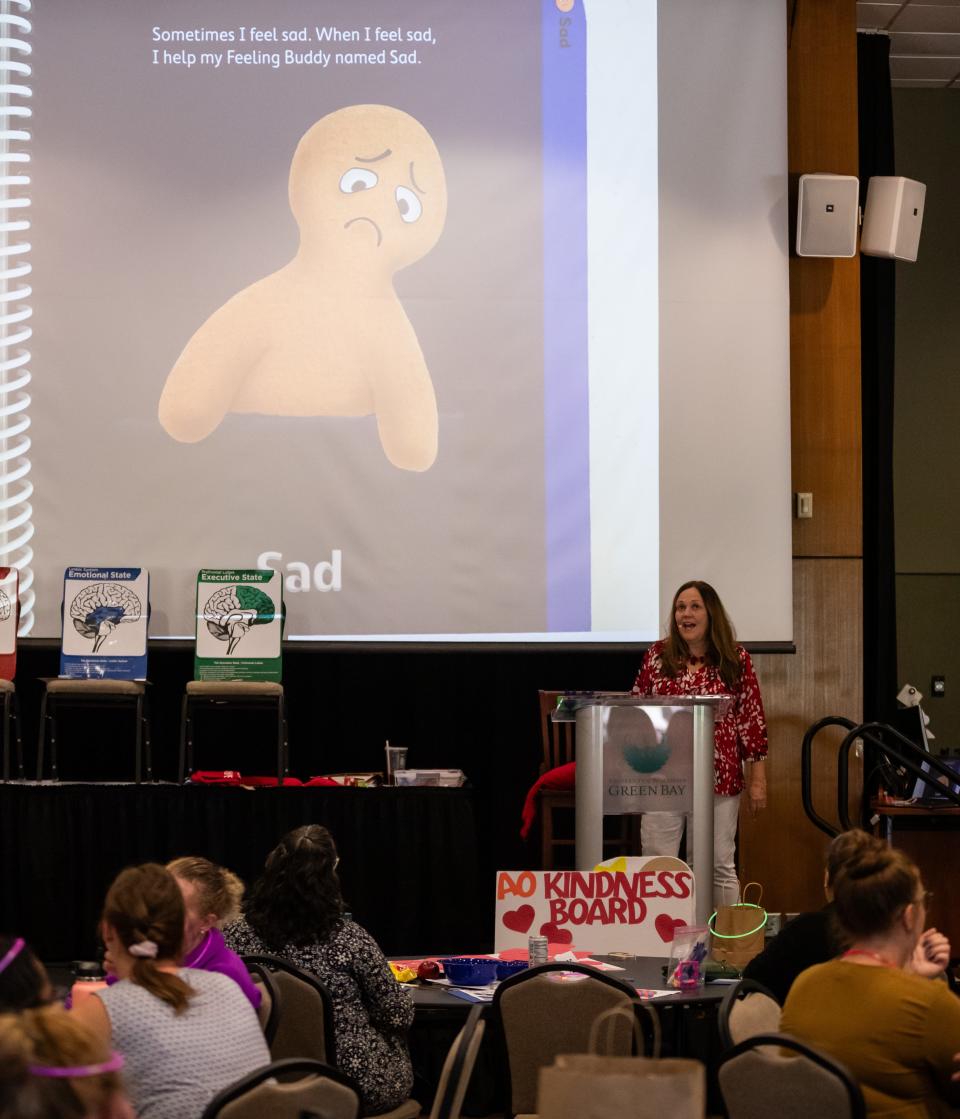What is 'Conscious Discipline,' and how can it help students?
Changes to students' social-emotional well-being is commonly regarded as another consequence of the pandemic — and the youngest Wisconsinites are not immune.
For some children, the return to school or child care marked the first substantial amount of time out of their house in years. Before going to child care, some children never socially interacted with their peers. In a 2021 survey, the majority of Wisconsin early childhood education professionals reported an increase in challenging behaviors, such as aggression.
More: Pandemic, aftermath add more stress to Wisconsin early childhood teachers' mental health

Such factors have led more early childhood education programs to seek information on "Conscious Discipline," said Kay Zastrow, a certified instructor in the method out of Green Bay.
Others, who have been using the social-emotional learning program for years, such as Encompass Early Education and Care Inc. and University of Wisconsin Oshkosh Head Start, have ramped up training on the program.
Here are answers to common questions about Conscious Discipline.
What is Conscious Discipline?
Becky Bailey and Kate O'Neil founded the Conscious Discipline company in 1996. Conscious Discipline materials state misbehavior and conflict should lead to a teaching moment, not punishment. The program provides strategies for teaching children social-emotional skills.
"Instead of the old model of discipline where we relied heavily on external reward systems and rewards and punishments, we're trying to build within children an internal value system that says 'Do the right thing because it's the right thing,'" said Abbi Kruse, a Conscious Discipline certified instructor and the executive director of The Playing Field child care centers in Madison. "(It focuses on) how to control your thoughts, feelings and behaviors from the inside."
How is Conscious Discipline based in brain science?
According to its website, The Conscious Discipline Brain State Model draws on the brain's structure to explain how to increase self-awareness and effectively respond to situations.
The model divides the brain into three sections, each of which contributes to a different level of functioning.
The lower brain contains the brain stem and controls basic survival skills. This brain state asks "Am I safe?" To move out of the survival state, one must reach safety.
The middle brain holds the limbic system, and "comes online" when a child is about 15 months old, Kruse said. This part of the brain, which houses the emotional state, craves connection. It asks, "Am I loved?"
Once the needs of safety and connection are met, a human can access their brain's executive state, the hub for problem-solving and learning. At this point, Kruse said, the question becomes, "What can I learn?"
"Children aren't just disrespectful or mean; they're missing some skills or just having difficulty accessing their higher brain state, and because of that, they are unable to manage or co-regulate their emotions," Zastrow said.
Conscious Discipline is an 'adult-first' model. What does this mean?
Conscious Discipline asks adults to evaluate and regulate their own brain state before asking a child to do something, Zastrow and Kruse said. Zastrow said when adults improve their skills first, it creates a shift in the learning culture and allows the adults to model healthy skillsets.
"If I have a child that's dysregulated, I'm going to regulate myself first before I even try to help that child regulate," Kruse said. "If I want the child to be kind and respectful, I am going to demonstrate kindness and respect for the child."

How is Conscious Discipline used in early childhood education?
Zastrow said Conscious Discipline teaches young children skills such as how to find and maintain composure, respond to triggers, be part of a community and use an assertive voice.
The latter may be a child saying, "I don't like it when you push me; please walk around me," when another preschooler shoves them. Instead of going with their natural reaction of lashing back, the child can use a conscious response accessed from their higher executive brain state, Zastrow explained.
Many centers, like Encompass, use "feeling buddies." These little gingerbread-shaped dolls each represent a different emotion, as can be seen in their expressions. They are designed to help children embrace their feelings, as well as find ways to calm themselves and solve problems. For example, when a child feels angry, they may grab the "angry buddy" and guide the buddy through deep breaths.
Related: Meet Prada, the new Menasha High School therapy dog
Related: Your child needs mental health counseling. Get ready to wait weeks, with no guarantee of a good fit.
How does Conscious Discipline help early childhood education?
It's beneficial for children to learn these skills when they're young, Zastrow said.
“It’s much easier to start out and learn something in a way that’s helpful, then be able to change behavior when a critical path of responding has been established," Zastrow said.
One study, published in Early Childhood Research Quarterly, found associations between preschool teachers' committed use of Conscious Discipline and children's development of executive functioning skills, which are self-regulatory processes that can predict success in school and social skills. The researchers suggested that more studies be done examining the use of Conscious Discipline and developmental outcomes and how it compares to other behavior management strategies.
Another study, published in the Journal of Research in Innovative Teaching & Learning, showed the majority of parents participating in Conscious Discipline's parent education curriculum reported positive changes in their children's behavior.

Kruse said training every The Playing Field teacher in Conscious Discipline has given them the tools they need to support children affected by trauma. Kruse said because her staff feel well-equipped to serve children with a variety of needs, staff turnover rates at her centers are about 20% — half the industry average. The centers also don't feel the need to rely on suspensions and expulsions when children exhibit challenging behaviors, another win Kruse credits to Conscious Discipline. In fact, they have never suspended or expelled a child, Kruse said.
“When our teachers have the support and the skills they need, they can support these children, and we’ve seen some amazing success," Kruse said.
For more information on Conscious Discipline, visit conciousdiscipline.com.
More: Wisconsin preschoolers are 5 times more likely to be expelled than K-12 students, but why?
More: Pandemic, aftermath add more stress to Wisconsin early childhood teachers' mental health
Madison Lammert covers child care and early education across Wisconsin as a Report for America corps member based at The Appleton Post-Crescent. To contact her, email mlammert@gannett.com or call 920-993-7108. Please consider supporting journalism that informs our democracy with a tax-deductible gift to Report for America.
This article originally appeared on Milwaukee Journal Sentinel: Conscious Discipline can help children with social-emotional skills

